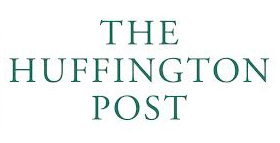This morning I opened a Christmas card from my realtor, whom I’ll call Gail. The cover had photos of her kids, and the inside had a note to me written by hand: “Erica, hope you and your family have a wonderful first Thanksgiving at Lincoln Road!”
What’s the problem?
Well, the main one is that I’ve lived on Lincoln Road for more than ten years. Literally. Gail sold me this house when Y2K was still news.
The second one is that I live here without a family. I have a husband and a stepson, but they live in another house in another country. Gail theoretically knows that, since she calls me periodically to “catch up” and let me know “the market’s hot so it’s a good time to consider selling.”
Gail took the time to write the darn note. Yet this is my paraphrase of the “personal touch” of her hand-written message:
I KNOW NOTHING ABOUT YOU, and I CARE ABOUT YOU EVEN LESS.
I know her intention was good. Nonetheless, from a client relationship perspective, this Christmas card is a disaster.
Don’t Fake Personal Connection
It’s the holiday season. A time when businesses big and small reach out to their customers. You send a token of appreciation, a catalogue, maybe a calendar with your company logo at the top.
Conventional wisdom says to go the extra mile. Take the time to sign your cards, or better yet, write a personal message to each person receiving it.
This is good advice.
However, as the cautionary tale above shows, there’s a catch. A personal touch is great when you’re paying attention. If you move too quickly, or mindlessly, that little note at the bottom of your card can actually damage your relationship.
An axiom in consulting is “go slow to go fast.” At this time of year, follow this principle before your well-meaning holiday greeting becomes a press release that you’re out of touch.
A few reminders of things you know, but can slip by when you move too quickly:
- Make sure you spell people’s names correctly
- Update your database with personal life changes you know about (you don’t want to send good wishes to a client and his wife if they got divorced last year)
- If you’re recycling old holiday cards, make sure they don’t have last year’s date on them
- If you’re sending small gifts, don’t send people the exact same gift you sent last year
- If a client of yours got a new job this year, make sure to send your holiday card to his/her new business address
Perhaps most important, be careful with your categories. A one-minute check of client categories could’ve saved my realtor from welcoming a long-time home owner to her first Thanksgiving in the house. Instead, she let me know I’m just a name on a list – and the wrong list at that.
Why should you care?
The right holiday gestures create positive relationship value. But empty ones can destroy value for your business.
At the end of the day, customer loyalty comes from the experience of a genuine relationship. If I know Gail cares about me at least a little bit beyond the commercial opportunity I represent, then I feel inclined to hire her when it’s time to sell my house at Lincoln Road. When I start to question if her warmth and outreach is future business development and nothing more, then I feel no need to bring her my business later on.
Careless client relationship management paves a direct path to your bottom line. Paradoxically, the best way to take care of your future business interests is to generate sincere care for your customers, and then find a way to show them thatthey genuinely matter to you.
To learn more, please connect with me on Twitter, follow me on LinkedIn or visitwww.winningfromwithin.com. You can also read more about managing relationships with others (and your own inner negotiators) in my new book, Winning From Within: A Breakthrough Method for Leading, Living, and Lasting Change.


